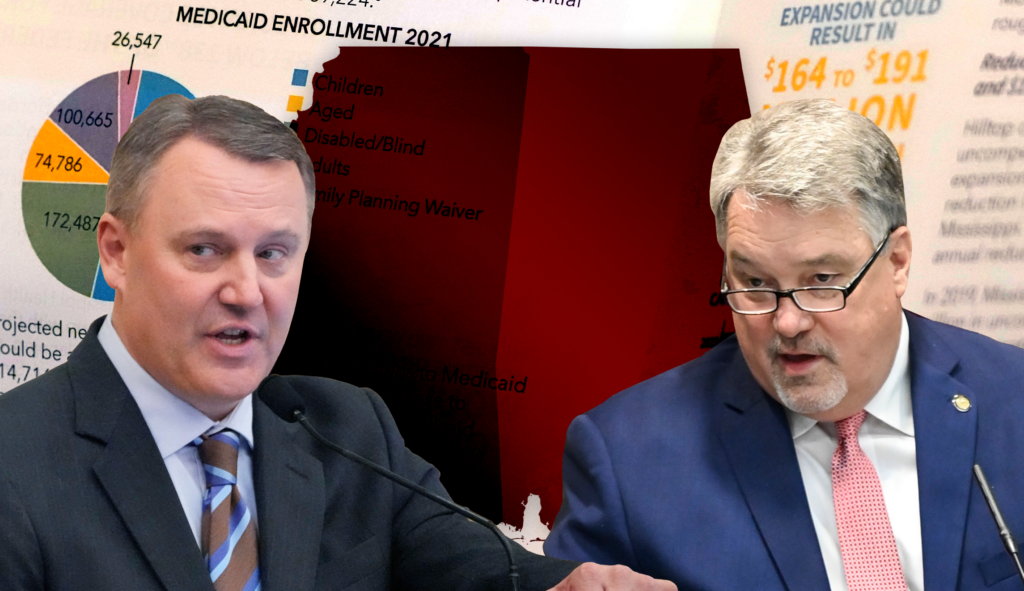When President Barack Obama signed the Patient Protection and Affordable Care Act, aka Obamacare, in March 2010, one Republican in the House voted for it and it received zero Senate GOP votes amid a strong Democratic majority. The Republican mantra from that day forward was “Repeal.”
Over the next six years, Republicans attempted to repeal all or parts of Obamacare over 50 times. When the GOP finally succeeded in mustering up the necessary votes for a full repeal in January 2016, Obama, not surprising anyone, vetoed the bill.
After Sen. John McCain (R-AZ) famously gave a thumbs down to a “skinny repeal” of Obamacare in July 2017, the effort was all but dead.
One of the significant features of Obamacare is Medicaid expansion. Typically, Medicaid had limited eligibility for certain low-income children, pregnant women, parents of dependent children, older adults, and people with disabilities. The expansion allowed states to offer Medicaid to people based on income alone. States had to opt in to get the federal matching funds for the expansion.

As expected, “blue” states went all in, while many “red” states declined. Congress passed the Families First Coronavirus Response Act in 2020, requiring expanded Medicaid coverage in all states. Still, Congress delinked the continuous enrollment provision from the COVID-19 public health emergency, ending continuous enrollment on March 31, 2023. As such, 10 states “unwinded” the expansion: Alabama, Florida, Georgia, Kansas, Mississippi, South Carolina, Tennessee, Texas, Wisconsin, and Wyoming. These states based their refusals to continue on soaring costs, effectiveness, and ideological opposition to more government-funded healthcare.
Practical and political realities, however, have started to create some cracks in the opposition. The rise of former President Donald Trump and his populist approach to politics created a shift in the party, with the GOP now appealing to more working-class voters. In 2012, Obama defeated GOP presidential rival Mitt Romney with voters who made under $50,000 by 22 points, 60% to 38%. By 2020, that gap narrowed between Trump and President Joe Biden to 11 points, 55% to 44%. Obama won those without college degrees in 2012, but Trump claimed that demographic in 2016 and 2020.
Antipathy toward Obamacare has faded. In July 2014, Obamacare had a favorable rating of only 37%, with 53% disapproving. In February of this year, that flipped entirely, with the public giving a favorable opinion of 59%, while 39% disapproved.
The other issue is that most of these working-class voters in “red” states live in rural areas, where hospital closures have become a significant problem. Eight of Mississippi’s rural hospitals have closed since 2009, and five more have gone into bankruptcy proceedings since then, according to the Mississippi Hospital Association.
It came as somewhat of a surprise when the Mississippi House of Representatives on Feb. 28 passed the Healthy Mississippi Works bill, which would expand Medicaid coverage to 210,000 state residents. The vote in the House was 98-20, receiving no vocal opposition.
The champion of the expansion was Republican House Speaker Jason White. He told reporters, “As I have traveled across this state, visiting with business leaders, community officials, and ultimately voters, the most consistent message I hear is the demand to address the shortfalls in our healthcare accessibility and availability in Mississippi. I found the desire to keep Mississippians in the workforce and out of our emergency rooms transcending any political party and impacts all regions of our state. Our determination to improve access to healthcare is a vital piece of the economic puzzle as a healthy workforce supports a healthy economy.”
The bill now goes to the state Senate, where it will probably pass. The one hurdle is Gov. Tate Reeves (R-MS), who is a staunch opponent of Medicaid expansion. However, should the Senate pass the bill with a veto-proof majority as it did in the House, Reeves’s view won’t matter.
CLICK HERE TO READ MORE FROM THE WASHINGTON EXAMINER
In Alabama, Republican state House Speaker Nathaniel Ledbetter said the state has “got to have the conversation” about expanding Medicaid coverage. Georgia implemented a narrow Medicaid expansion, but critics say it still leaves hundreds of thousands without coverage. In Kansas, Gov. Laura Kelly (D-KS) attempted to persuade the Republican-controlled legislature to expand Medicaid by offering to include a work requirement. Still, lawmakers balked, with Republican House Speaker Dan Hawkins saying in an interview that “Medicaid should be reserved for only those truly that need it, the children, the elderly, the disabled.”
Whether the holdouts continue remains to be seen. If expansion passes in Mississippi, it could get taken as a green light for some other states to follow suit, especially heading into the 2024 elections.
